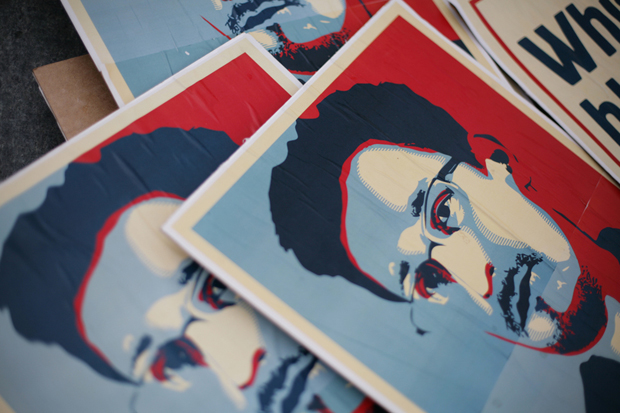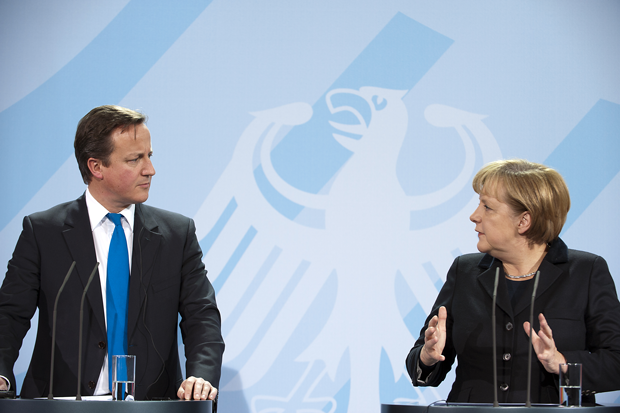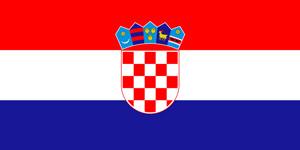30 Sep 2013 | Digital Freedom, Guest Post, News, Pacific Standard

NSA operations center in 2012 (Photo: Public Domain)
A few days ago the European Parliament’s Office of Citizens’ Rights and Constitutional Affairs released a notably pointed briefing paper arguing for Europe to stop trusting American Internet services. The briefing and the committee are the latest forum tosuggest that European states create domestic cloud computing capacities to provide member states legal protection for NSA data surveillance. The report has the not-at-all-subtle title “The US National Security Agency Surveillance Programmes (PRISM) Foreign Intelligence Surveillance (FISA) Activities and Their Impact on EU Citizens’ Fundamental Rights.” Among the findings:
Prominent notices should be displayed by every US web site offering services in the EU to inform consent to collect data from EU citizens. The users should be made aware that the data may be subject to surveillance (under FISA 702) by the US government for any purpose which furthers US foreign policy.
The argument there being that people will have an incentive to find other websites to use. Particularly for e-commerce. Companies like Amazon, and U.S. airlines and ticketing agencies—Expedia and the like—won’t be pleased, and that in turn will create economic pressure to alter surveillance strategy, the report argues.
A consent requirement will raise EU citizen awareness and favour growth of services solely within EU jurisdiction. This will thus have economic impact on US business and increase pressure on the US government to reach a settlement.
That isn’t all. The report argues for the European Union to simply swear off U.S.-based cloud computing, and to develop local capacity. Again, the argument is largely economic.
Such a policy would reduce US control over the high end of the Cloud e-commerce value chain and EU online advertising markets. Currently European data is exposed to commercial manipulation, foreign intelligence surveillance and industrial espionage. Investments in a European Cloud will bring economic benefits as well as providing the foundation for durable data sovereignty.
Further along, the report notes the different ways the NSA scandal has been understood inside and outside the US. Inside the U.S. a key issue was whether the NSA has been spying domestically, on U.S. citizens, and the implications of that question for domestic data security. Abroad, the report notes, people are understandably more interested in their own ability to protect personal data from the NSA. The briefing suggests E.U.-U.S. negotiations on data security, though efforts at such negotiations have failed previously.
…a casual reader would not understand that the intended target of surveillance was non-Americans, and that they had no rights at all. It seems that the only solution which can be trusted to resolve the PRISM affair must involve changes to the law of the US, and this should be the strategic objective of the EU. Furthermore, the EU must examine with great care the precise type of treaty instrument proposed in any future settlement with the US. [boldface as printed] Practical but effective mechanisms are also needed to verify that disclosures of data to the US for justifiable law enforcement investigations are not abused.
In sum, Europe’s still upset, and talking seriously and in public about how to protect itself from American eavesdropping. Yesterday, Slate‘s Ryan Gallagher flagged a want ad for a counterintelligence professional posted on a Parliament website last July, shortly after the Edward Snowden affair broke. The same body is housed in a Brussels building ID’d as an NSA target in the Snowden papers, according to the Slate report.
This article originally appeared at Pacific Standard. Pacific Standard is an arm of the nonprofit Miller-McCune Center for Research, Media and Public Policy.
25 Sep 2013 | News

(Photo: David von Blohn / Demotix)
This article was originally published at Indy Voices
What’s happened to Edward Snowden and his revelations about the National Security Agency’s surveillance programme? As stories keep emerging from one of the largest leaks in US history, we learn more and more about the Americans’ ability to monitor communications, but seem less sure how to respond. Most people would acknowledge that the state does retain some right to monitor suspect activities. But this is a very different proposition from the population-wide mass surveillance suggested by the documents leaked by Snowden. Clearly the balance has tipped much too far in favour of default data gathering. So how do we move it back?
This is a complex discussion, and it’s not really being had in the UK right now. The Guardian’s Simon Jenkins has suggested an establishment conspiracy has kept the public from talking about this – it’s certainly true that the response here has not been on the level of that in other countries (not least in Brazil, where a national Internet redesign to avoid US surveillance is being considered).
But part of the problem here is not simply that people have been shielded from the discussion on surveillance, or that people don’t care. It is that people do not know what we are supposed to do about this. Who do we appeal to? What do we want?
This is where the European Union can come into its own. An Englishman’s home may be his castle, but nowhere is protection of privacy given more credence than in Brussels and Berlin. A horror of Soviet-style surveillance of citizens runs deep in many European institutions and nation states, particularly those that had hands-on experience. The most powerful person in Europe, Angela Merkel, remember, was a citizen of Stasiland.
The European Parliament’s Civil Liberties, Justice and Home Affairs Committee (Libe), has set out to investigate claims of surveillance and examine what the EU can do about it. UK Labour MEP Claude Moraes has been charged with reporting on the Committee’s findings by the end of the year.
The parliament will be considerably aided by a 36-page briefing by independent surveillance researcher Caspar Bowden, who was helpfully mapped out the history of US and UK surveillance, and overlap with the European Union, all the way back to Alan Turing’s work with US spies in 1942.
Bowden comes up with several recommendations for Europe: the development of a “European cloud”, the revoking or renegotiation of mechanisms that allow US companies to gather data from European users, and, significantly in the case of the Snowden revelations, “systematic protection and incentives for whistleblowers”.
The European parliament investigation is welcome. But in reality, there is only a certain amount the parliament can actually achieve. The real power will, in the end, rest in the will of the governments of the respective European Union countries to act. Europe’s cyber strategy already states that “increased global connectivity should not be accompanied by censorship or mass surveillance”. But it’s time EU leaders acted on this.
That’s why Index on Censorship, along with dozens of other groups, including Amnesty, Reporters Without Borders and the Electronic Frontier Foundation, as well as stars and activists such as Bianca Jagger, Stephen Fry and Cory Doctorow, is petitioning European leaders directly. The next European Council Summit takes place at the end of October. We want every European government head there to publicly take a stand against mass surveillance.
The European Union, founded in part as a democratic bulwark against the authoritarianism of the eastern bloc, has a chance to stand out in the world against surveillance and for the rights of free speech and privacy. In the coming decades, power will be defined by who controls information: Europe, as a powerful democratic force, should work to ensure that its own ordinary citizens and people around the world are not left impotent.
Sign the petition telling EU leaders to stop mass surveillance here
22 Jul 2013 | Comment, Digital Freedom, Europe and Central Asia, News, United Kingdom, United States
There have been some sharply contrasting political reactions to the US and UK’s mass surveillance programmes in European countries in recent days. Could the US perhaps play divide and rule in managing the fallout from Snowden’s revelations in Europe? Or is there enough common ground between German, UK or even Russian politicians to push for real changes in US (and UK and French) snooping?

(Photo: Gonçalo Silva / Demotix)
At first glance, it seems the issue is being damped down in the UK in contrast to angry and sustained political debate in Germany, and a more nationalist and opportunistic response by Russian politicians.
Last week British MPs on parliament’s intelligence and security committee confirmed that GCHQ, the UK’s signals intelligence HQ, had indeed obtained intelligence from the US Prism programme. But they concluded, remarkably quickly (no long investigation here), that allegations of law-breaking were “unfounded”. Whether the MPs are right or not, their report in fact only concerns part of Prism – the ‘content’ data GCHQ accessed and not the reams of metadata which can be equally or more revealing about individuals’ activities; and it doesn’t touch at all on the so-called Tempora programme by which, according to Snowden, the UK has been accessing massive amounts of data, by tapping into underwater cables, on a scale that goes beyond even US activities.
Meanwhile in Berlin last week, German politicians on the Bundestag’s control committee – were demanding answers on the NSA revelations from interior minister Hans-Peter Friedrich, who admitted he was still trying to get enough information out of the US on the reach of American surveillance. The following day, German journalists grilled Chancellor Angela Merkel’s spokesman for an hour and half about what the German government and security services already knew about US snooping, and how they will stop it.
Merkel has called on Obama to respect German laws though adding, rather curiously, “on German territory” – snooping on Germans on servers in the US or as their communications pass through underwater cables are side-lined by this emphasis. Merkel is also pushing for action at EU level, promising she will demand much tougher EU data protection laws – due to be agreed in the coming months. Germany’s political response seems in a much higher gear than in the UK.
Over in Moscow, some Russian MPs too are emphasising safeguards to protect personal data from US snooping. But with demands for big companies like Google and Facebook to respect Russian laws and pass on user data when requested (just as they have been in the US), this is not a sudden shift to political support for digital freedom in Russia. It is simple political opportunism taking full advantage of the NSA’s activities and revelations to reinforce Russia’s determined attempts domestically and internationally to control, monitor and impede a free and open internet.
But German, British or EU criticism of Russia’s attacks on digital freedom will be ignored and labelled hypocritical unless there is a much stronger condemnation of mass surveillance from European leaders and action to limit future abuses. Nor is this simply about whether intelligence services are operating within the law (and whose laws) important though that is. It is about ensuring laws do not allow the sort of mass surveillance domestically and internationally that the NSA, GCHQ – and it would seem France too – have been carrying out.
Here the report from the MPs on the British intelligence and security committee potentially opens up a vital debate. Incautious language, the MPs say that existing legislation is “expressed in general terms” and that GCHQ itself was right to put more detailed practices into place to ensure compliance with UK human rights law. Crucially, though a studied understatement, they say that the “complex interaction” between UK human rights laws and security laws needs further consideration – and commit the security committee to investigate further.
So more digging will happen in the UK, in Germany – and too at EU level thanks to the efforts of the European Parliament.
But the UK is clearly as complicit as the US in mass surveillance. And there is growing and sharper questioning in Germany of how much the government and the security services previously knew about US and UK snooping.
So where new revelations and investigations will take European countries in the coming weeks is an open question. And whether we will see a united defence of digital freedom in Europe and an end to mass surveillance is at best unclear for now and, more probably, highly unlikely.
Kirsty Hughes is the CEO of Index on Censorship. She tweets @Kirsty_Index
1 Jul 2013 | Europe and Central Asia
 At the stroke of midnight on Sunday, Croatia officially became the 28th member of the European Union. Croatia will be a “serious, responsible and active member”, said President Ivo Josipovic as he ushered in “the first day of our European future”. But threats to freedom of expression, especially in the media, remain.
At the stroke of midnight on Sunday, Croatia officially became the 28th member of the European Union. Croatia will be a “serious, responsible and active member”, said President Ivo Josipovic as he ushered in “the first day of our European future”. But threats to freedom of expression, especially in the media, remain.
While the 2012 accession referendum was passed with the lowest ever turnout in a prospective member state, and enthusiasm has since waned further, today is a momentous occasion for a country that was at war only two decades ago – and still grapples with the aftermath. However, with the European Commission regarding freedom of expression a ‘key indicator’ for a country’s readiness to join the union, we should acknowledge that while Croatia has taken some important steps forward, there is work left to do.
The constitution guarantees freedom of expression and the press, and Croatia has recently seen a modest increase in its Freedom House global press freedom ranking, from 78 in 2009, to 64 this year. However, this comes after a significant tumble from 41 in 2007. Croatian journalists, especially those covering war crimes, organised crime and corruption, face continued threats to their well-being and livelihoods.
OSCE media freedom representative, Dunja Mijatovic has repeatedly expressed concerns about public broadcaster HRTs apparent practice of silencing critical journalists. Most recently, in March this year, journalists Denis Latin, Katja Kusec and Ruzica Renic were fired from HRT in suspicious circumstances.
In 2008, Ivo Pukanic, a journalist covering organised crime, intelligence and war profiteering was killed by a car bomb outside his office. It was the third attempt on his life, and also killed his associate Niko Franjic. Six men were convicted for the murders in 2010, but it is still unknown who commissioned the assassination.
This is far from the only attack on Croatian media. In 2007, journalist Zalko Peratovic was detained and his house searched for violating state secrets after publishing a story on war crimes on his blog. Owner of Nova TV, Ivan Caleta, and former media mogul Miroslav Kutle, have both been shot at. Ninoslav Pavic, co-owner of Croatia’s biggest publishing house had his car bombed. Andrej Maksimovic, editor of OTV, has been attacked twice. This handful of examples goes some way in explaining the overall environment of fear and intimidation that has chilled press freedom and consequently freedom of expression in Croatia.
But challenges to freedom of expression exist outside of the realm of the media too. While prison sentences for defamation were abolished in 2006, libel is a criminal offense punishable by fines. Given the country’s recent history, hate speech is not taken lightly. Hate speech based on race, religion, sexual orientation, nationality, ethnicity, or unspecified ‘other characteristics’ are punishable by up to five years in prison — three years if committed over the internet. Insulting ‘the Republic of Croatia, its flag, coat of arms or national anthem’ can bring up to three years in prison.
Unlike neighbouring countries Croatia has not banned gay pride parades, but freedom of assembly for Croatia’s LGBT population has still be under threat. When a parade was organised for the first time in Split in 2011, the small number of participants were pelted with eggs and rocks by thousands of counter-protesters. The police also failed to investigate an attack on six young men and women in the aftermath of the parade. Authorities have also come under fire for failure to investigate persistent acts of vandalism aimed at the country’s minority Serbian Orthodox community.
Despite this, some aspects of freedom of expression have improved recently. This year’s Zagreb pride parade saw its biggest turnout ever, as 15,000 people attended the peaceful march. In another positive development, this February, parliament adopted a Freedom of Information Act. A new body will be set up, specifically dedicated to freedom of expression, with greater focus on public interest and proactive publishing of information.
Croatian leaders and EU politicians have taken pains to stress that accession does not automatically solve the country’s problems. While they were largely referring to the economic situation, the same principle goes for freedom of expression. You only have to look to EU members like Hungary to see that membership alone does not necessarily improve media freedom. For Croatia, as with other recent additions to the union, membership is merely an initial, tentative step towards increased political and civil rights for its citizens.




 At the stroke of midnight on Sunday, Croatia officially became the 28th member of the European Union. Croatia will be a “serious, responsible and active member”, said President Ivo Josipovic as he ushered in “the first day of our European future”. But threats to freedom of expression, especially in the media, remain.
At the stroke of midnight on Sunday, Croatia officially became the 28th member of the European Union. Croatia will be a “serious, responsible and active member”, said President Ivo Josipovic as he ushered in “the first day of our European future”. But threats to freedom of expression, especially in the media, remain.